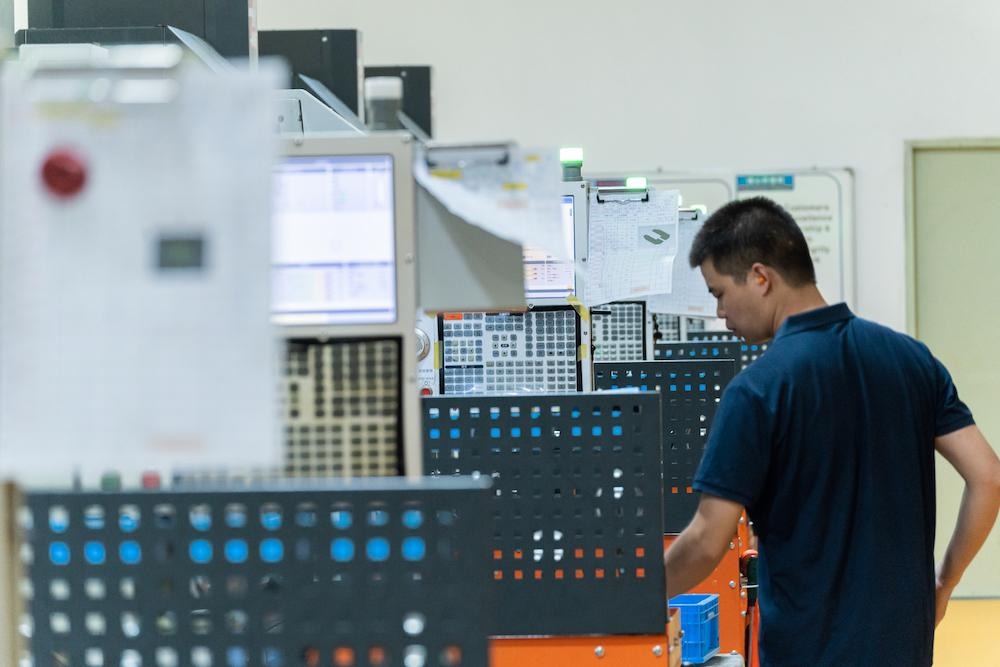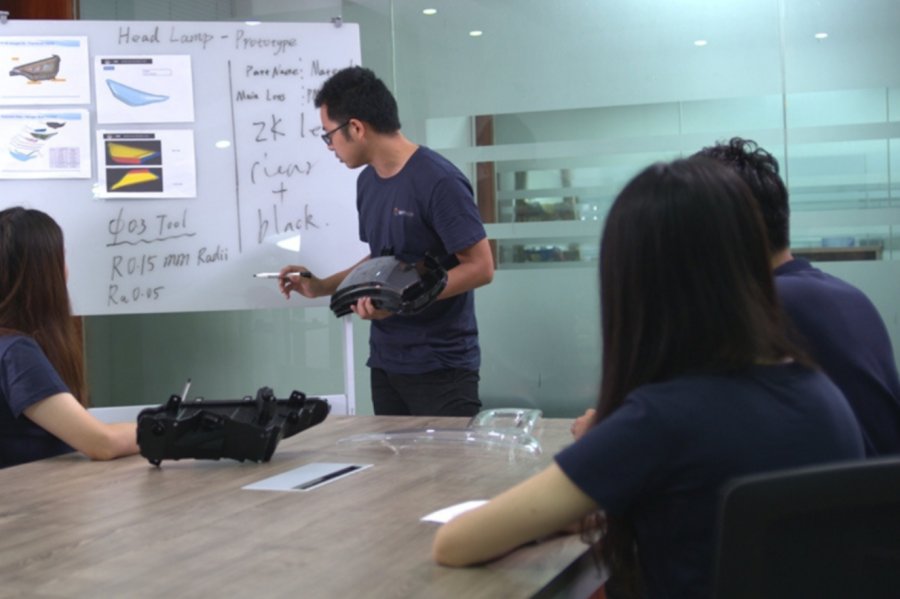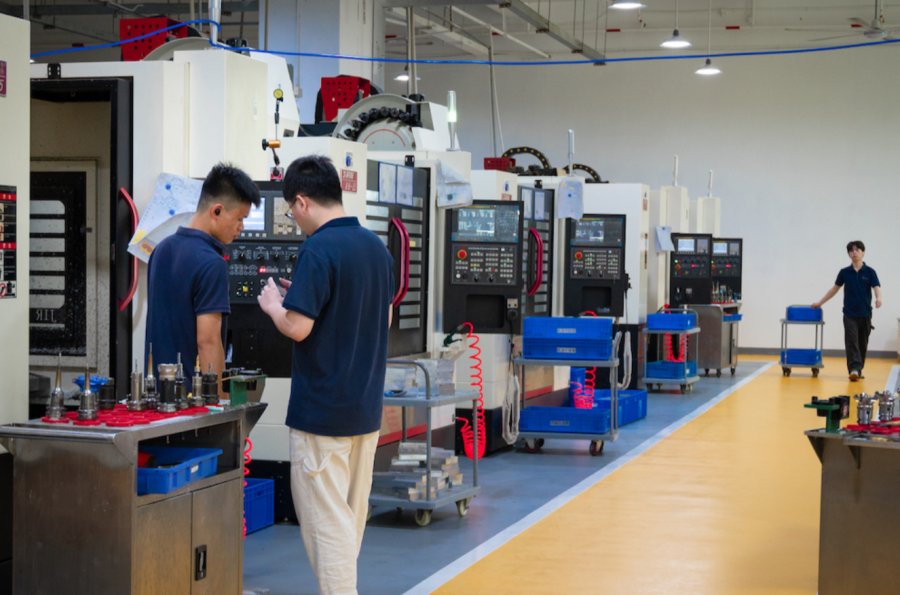The Key Customer Service Challenges for Manufacturers

The manufacturing industry—particularly in sectors that rely on custom machined parts—faces ongoing customer service challenges that affect efficiency, satisfaction, and profitability. Rising demand for customization puts pressure on manufacturers to deliver highly tailored solutions without delaying timelines. At the same time, supply chain disruptions and material shortages make production less predictable.

Communication gaps between clients and production teams further complicate projects. At WayKen rapid manufacturing, a focus on precision, transparency, and adaptability helps overcome these challenges, ensuring consistent value in competitive markets.
This article delves into these key hurdles, offering a comprehensive look at their effects on operations and the strategies manufacturers can employ to address them. By exploring each challenge in detail, the article aims to highlight the complexities involved and provide a foundation for improving service delivery in this competitive field.
Rising Demand for Customization
As customers increasingly demand tailored products that match their specific needs, manufacturers face the challenge of managing a higher degree of complexity in every project. Each order may require unique materials, specialized tooling, or modified production schedules—all of which put pressure on existing systems. Traditional manufacturing workflows, built around mass production and standardization, are often too rigid to handle rapid design changes or low volume custom machined parts. This mismatch can lead to communication gaps between engineering and sales teams, delayed approvals, and difficulty maintaining consistent quality across variants. As a result, manufacturers must develop flexible processes that can adapt quickly without sacrificing precision or delivery speed.
To meet these expectations, many companies are turning to digital transformation and intelligent automation. Advanced ERP and CRM systems allow teams to centralize customer data, track design revisions, and align production schedules in real time. Smart manufacturing tools, such as AI-driven demand forecasting and integrated quality monitoring, help manufacturers anticipate customization needs and allocate resources more efficiently. By combining skilled manpower with data-driven workflows, manufacturers can maintain responsiveness even under growing pressure for personalization. This shift not only enhances customer satisfaction but also establishes a competitive advantage in an increasingly customization-driven market.

Supply Chain Disruptions
The production of custom machined parts is often derailed by supply chain disruptions, which is a significant headache to producers. A lack of raw materials or transport slowdown can stop the process and keep the customers waiting to receive their orders. The missing of one component can cause the delay of a complete batch, which intensifies the issue.
In response to this, forward-thinking manufacturers are investing in more resilient and transparent supply chain strategies. This includes adopting digital supply chain management tools that provide real-time visibility into inventory levels, supplier performance, and logistics networks.
Predictive analytics helps identify potential bottlenecks before they escalate, allowing production teams to adjust schedules or source alternatives proactively. Closer collaboration with local suppliers and multi-sourcing strategies also reduce dependency on a single region or vendor.
By combining these digital and strategic initiatives, manufacturers can minimize disruption risks, maintain consistent customer communication, and safeguard their reputation for reliability even in volatile global markets.
Quality Control Pressures
As customer expectations continue to rise, maintaining consistent quality across diverse product variations has become one of the toughest challenges for manufacturers. The shift toward customization means that every batch—or even every individual part—may differ slightly in design, material, or production parameters. This variability increases the risk of dimensional inaccuracies, material inconsistencies, and performance deviations.
To cope with these pressures, manufacturers are increasingly integrating advanced quality control systems into their workflows. Automated inspection technologies—such as in-process metrology, vision systems, and AI-driven defect detection—allow for continuous monitoring throughout production, ensuring that deviations are identified and corrected in real time. Data analytics also plays a crucial role, helping teams identify recurring quality issues, trace root causes, and optimize processes for future runs.
By embedding quality assurance directly into the production line rather than treating it as a separate step, manufacturers can uphold high standards even amid growing complexity. This proactive approach not only minimizes waste and rework but also strengthens customer confidence and long-term trust.
Cost Management Difficulties
Producing custom machined parts often comes with high costs, creating a challenge for manufacturers. The specialized nature of these components drives up expenses, while customers expect competitive pricing without sacrificing quality. This balance is tough to achieve, requiring optimization of production processes to reduce waste. Efficient machinery or streamlined workflows can help, but these improvements demand upfront investment.
Manufacturers must find ways to deliver custom machined parts at reasonable rates while covering their costs. Failing to manage expenses can force price hikes, driving customers to competitors. Success here depends on smart planning and a focus on delivering value. Cost control is a critical concern for producers of custom machined parts, shaping their ability to remain profitable and appealing in a crowded market.
Strategies for Improvement
Manufacturers can adopt practical steps to enhance service despite these challenges. Investing in automation can boost efficiency in producing custom machined parts, reducing manual errors. Training staff to conduct thorough quality checks ensures consistency across orders. Building a diverse supplier network minimizes the risk of delays from supply chain issues.
Regular feedback loops with customers help identify communication needs early, fostering better relationships. Analyzing production costs can reveal savings opportunities without compromising quality. These efforts demand commitment but lead to improved customer satisfaction. For manufacturers handling custom machined parts, staying adaptable and responsive is key to overcoming obstacles. Implementing these strategies builds a stronger foundation for long-term success.
Conclusion
The customer service challenges facing manufacturers, especially with custom machined parts, are tough but manageable with the right strategy. Tackling issues like rising demand, supply chain disruptions, quality control pressures, communication gaps, and cost management needs planning, investment, and clear communication. By overcoming these hurdles, manufacturers can improve service, gain a competitive edge, and build strong client relationships for lasting success.





